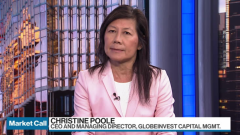Jun 14, 2024
Bill Gross Sells Stamps Worth $18 Million in New York Auction
, Bloomberg News
(Bloomberg) -- Bond billionaire Bill Gross auctioned 100 stamps worth $18.1 million on Friday, June 14, in New York, marking the penultimate phase of his vast collection’s multi-year liquidation. The sale, which was conducted by Robert A. Siegel Auction Galleries Inc., is the first part of a two-part auction, which carried a presale estimate of $15 million to $20 million. The second tranche, which represents just 5% of the presale estimate’s value, will hit the auction block on Saturday.
Not including Friday’s auction, Gross has sold over $24 million worth of his collection of U.S. stamps through Robert A. Siegel Auction Galleries; before that, he sold approximately $30 million worth of his international stamps through Shreves Philatelic Galleries, according to an auction house spokesperson.
Speaking on Bloomberg TV ahead of the sale, Gross said “I’m 80 years old and it’s time to turn this over to some other future collectors,” and continued that “I also think a slight negative here is that stamp collecting has always been a function of kids and their collecting who later on become wealthy adults. But in this case I don’t think kids are collecting stamps anymore.”
“This is a collection that very few people in the world could put together,” Scott Trepel, Siegel Auctions President, told Bloomberg TV. “There are stamps that are so rare that I don't care how much money you have; you’re going to need longevity because it might be a generation before they come up [again].”
The highest lot of the sale was the exceedingly rare one-cent “Z” Grill stamp from 1868, of which only two are known to exist. (The other has been in the New York Public Library for a century.) Anticipated to sell between $4 million and $5 million, its final price was $4.4 million.
It wasn’t the only stamp that sold for more than $1 million. A 15 cent Z Grill stamp featuring the face of Abraham Lincoln was estimated to sell between $1.5 million and $2 million, and hammered for $2.35 million.
In the same interview, Gross said that he was inspired to collect stamps by his mother, who’d intended to invest in stamps to put him through college. “She had the right idea but she bought the wrong stamps,” he said, which made him realize that “if I can apply bond market economic terminology and philosophy to the stamp auction,” he continued, “then perhaps we can make some money as well.”
©2024 Bloomberg L.P.


